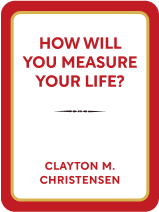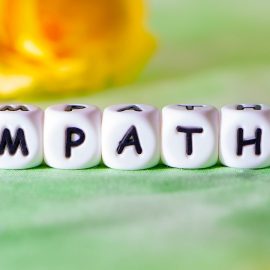

This article is an excerpt from the Shortform book guide to "How Will You Measure Your Life?" by Clayton M. Christensen. Shortform has the world's best summaries and analyses of books you should be reading.
Like this article? Sign up for a free trial here .
Do you want to find out how to make your partner happy? How can an economic theory help to improve your relationship?
In How Will You Measure Your Life, Clayton Christensen shows how economic theories can be applied to your personal life. In this article, you’ll learn how his popular theory can show you how to make your partner happy.
Read on to discover how to make your partner happy.
How to Make Your Partner Happy: Jobs to Be Done
Products often fail because companies develop them based on what they want to sell rather than on what customers need. They make something people don’t want or can’t use.
We often treat our relationships the same way misguided companies try to sell products—we focus on what’s important to us rather than what the other person wants. Understanding this can help you understand how to make your partner happy.
Theory: In his book The Innovator’s Dilemma, Christensen introduced a new theory of marketing and product development: determining the “job to be done.” The idea is that when people buy a product or service, they’re in effect hiring it to do a job for them. Products designed to do jobs customers want done are most successful.
Application: Applying the jobs-to-be-done mindset can help you improve your personal life as well. For each relationship, strive to understand the job you’re being “hired” to do, and then do it well. This can help you with how to make your partner happy.
Applying the Theory
Applying the jobs-to-be-done mindset can help you improve your personal and professional life. In each situation, strive to understand the job you’re being “hired” to do, and then do it well. Thinking of your marriage from this perspective can be transformative and will help you understand how to make your partner happy.
It will take practice; most people can’t articulate the jobs they’re trying to do, let alone the jobs they and their spouse are hiring each other to do for them.
Understanding what your spouse or partner is hiring you to do requires that you put yourself in the other person’s shoes (listen and practice empathy). This means realizing that the jobs your partner is trying to do, or needs you to do, are not necessarily the ones you think they should be focusing on. Ironically, many marriages in which partners are selfless are actually unhappy, because each is giving what they want to give—or what they think the other wants. They make wrong assumptions and, therefore, aren’t meeting the other’s true needs.
For example, when a husband gets home from work, he notices the kitchen is a mess. He assumes that this indicates his wife had a hard day, and that she could use some help. So he cleans everything up and starts dinner. But this isn’t the “job” she wants him to do; what she wants is a listening ear. Her day has been rough because of spending hours with small children, not because of chores. While he focuses on cleaning up instead of listening, she feels ignored.
Working to understand, rather than assuming, your partner’s needs is the way to build a strong marriage. Couples who are the most trusting and devoted to each other are doing the jobs each person needs to have done. In contrast, marriages in which one or both people define the relationship in terms of getting what they want often end in divorce.
The Importance of Sacrifice
Understanding your partner’s jobs-to-be-done strengthens the love and commitment you have for each other. The extent to which each of you sacrifices for the other’s happiness and success is the glue that holds your relationship together. If you want to know how to keep your partner happy, follow the advice below.
Sacrifice strengthens commitment not only in marriage but also in other relationships: among family members, close friends, organizations, and cultural groups. For example, Marines are deeply committed to their fellow Marines, the Corps, and the country, as a result of sacrificing for their peers during grueling training.
Your family is worth sacrificing for. Ask yourself what job your partner needs you to do, then devote your efforts to doing it. Let your partner and children sacrifice for you in turn, and you’ll strengthen your commitment to each other.
Questions to Ask to Make Your Partner Happy
Applying the jobs-to-be-done theory in your relationship means figuring out what “jobs” your partner needs you to do (not assuming you know what the other person wants and needs), then doing those things as well as you can. Answering the following questions will help you to work out how to keep your partner happy:
- Describe a time when you did something for your partner and they didn’t seem to appreciate it. How did you react and why?
- Putting yourself in your partner’s shoes, why do you think they reacted as they did?
- What jobs do you think your partner most wants you to do? How can you find out?
Following the advice in this article will help you to improve your relationship and understand how to keep your partner happy.

———End of Preview———
Like what you just read? Read the rest of the world's best book summary and analysis of Clayton M. Christensen's "How Will You Measure Your Life?" at Shortform .
Here's what you'll find in our full How Will You Measure Your Life? summary :
- How economic theories that help businesses succeed can also help individuals make better life decisions
- How to build a career that makes you happy
- How to deepen your relationships with your spouse and children






